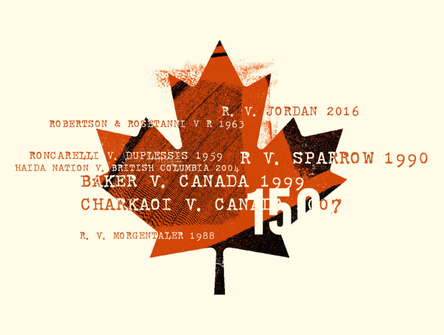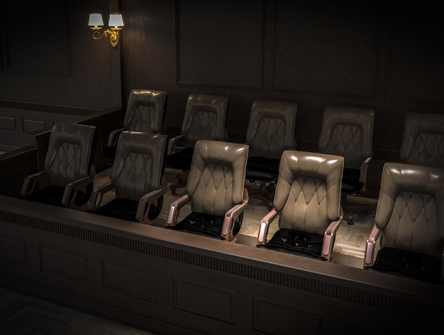Veterans benefits
How a class action by veterans could impact the law of fiduciary obligations owed by the Crown.

Six veterans of the war in Afghanistan are pressing ahead with a class action aimed at forcing the federal government to jettison its revised benefits system for injured and disabled soldiers. If successful, they would surely turn the Department of Veterans' Affairs on its head. They would also permanently enshrine Ottawa's fiduciary responsibility to care for those it sends into harm’s way.
Donald Sorochan, a partner at Miller Thomson in Vancouver, is taking on the class action, representing the veterans pro bono. He is invoking the honour of the Crown – a notion borrowed from aboriginal law – based on a promise made to veterans by then-Prime Minister Robert Borden in 1917, just before the Battle of Vimy Ridge: “No man, whether he goes back or whether he remains in Flanders, will have just cause to reproach the government for having broken faith with the men who won and the men who died.”
Sorochan argues that Borden’s government, and its successors, forged a covenant with its veterans, promising them a generous level of care. That took legislative form in the Veterans Charter, which afforded each disabled veteran a lifetime pension.
The New Veterans Charter, introduced by the Conservative Government in 2006, sought to replace that pension with a one-time lump sum payment, complemented by a complex system of allowances and programs. Veterans say the system is a failure, and leaves a cavernous gap between what they were promised when they went to war in Afghanistan, and what they received when they got back.
The veterans, aided by British Columbia-based veterans-support group Equitas, launched the class action lawsuit – Scott et al. v. Attorney General of Canada. They hope more veterans come forward and join the lawsuit.
But lawyers for the federal government are clear: "The Plaintiffs argue that the promises of past governments are binding on present and future governments," reads a statement from Veterans Affairs Canada, in response to the suit. "While this may sound reasonable, their argument could have a far broader impact than perhaps intended by the Plaintiffs."
Michel Drapeau, a 34-year veteran of the Canadian Forces who runs his own firm in Ottawa, says the Equitas lawsuit has a lot of merit, and will likely see the inside of the top court.
"I don't think, for a second, that the Supreme Court will sidestep it. If the honour of the Crown is not involved, then what is?" Drapeau told National. If they ever win the case, he says, it could carve out a unique niche in trust law that would put them on par with only First Nations.
In September, Justice Gordon Weatherill of the Supreme Court of British Columbia denied the government’s motion to dismiss. Even so, Justice Weatherill dismissed a number of other claims made in the lawsuit – namely that Charter rights were violated when veterans were evicted from their military-owned housing, and that the federal government has not lived up to the Universal Declaration of Human Rights in its dealings with them.
“While I accept that imposing a fiduciary duty on the Crown is inherently at odds with its duty to act in the best interests of society as a whole, I do not accept that, in the circumstances of this case, it is plain and obvious a court will decide a fiduciary duty cannot exist,” Weatherill wrote. The Attorney General filed an appeal to that decision in October.
Matthew Harrington is a law professor at the University of Montreal who specializes in public trust and fiduciary law. Recognizing that the Equitas case has a raw emotional appeal, he says he was initially skeptical of its legal merit.
“When I first saw the term ‘fiduciary,’ I scoffed,” Harrington says. “Then I read [the notice of claim] and thought, yeah, I can see that.”
There is little doubt, he says, that the New Veterans Charter diminishes the quality of care provided by the government, and there is certainly a case to be made that it constitutes “abandonment” to some degree.
Still the claim presents weaknesses on a number of fronts.
For one, Harrington says, ruling in favour of the veterans could mean riding roughshod over the sovereignty of Parliament. If the Supreme Court were to rule that the lump sum payment is not sufficient, subsequent governments will have little legislative leeway to change the system. Their hands would be tied, he says.
“I would think that the court would stay far away from what would been seen as a legislative decision in this judgement,” says Harrington.
Though the unprecedented nature of the case could lend itself to surprises. The case is trying to apply Borden’s speech as evidence that the Crown swore a verbal oath with those veterans. There is little in terms of case law to back that up.
“It’s almost always been applied against ministers of the Crown, it’s almost never been applied against the Crown itself,” he says. Some early examples include situations where a prosecutor reneged on a plea bargain, or a minister backed out of a deal with an individual. As the New Veterans Charter has passed royal assent, this is a challenge to the Crown itself.
“That would be a reach. That would be an expansion,” says Harrington.
But that doesn’t mean the veterans will lose. “This is one I think the court ought to struggle with,” says Harrington. He suspects one possible outcome is that the court will strike down the New Veterans Charter, and will instruct the government to go back to the drawing board to devise some new legislation.
The government has already signaled that intention.
Laurie Hawn, Conservative Member of Parliament for Edmonton Centre and former pilot in the Royal Canadian Air Force, defended the government's record this week at the Polish Combatants’ Association Hall, in Ottawa, and explained the government’s position on the lawsuit.
"I'm the pork in the synagogue," Hawn said as he walked up to the podium, facing a room full of veterans. He told the room that the government’s legal position on the lawsuit – that the Crown has no enshrined fiduciary, moral or social obligation to veterans – was not its public policy.
"Lawyers use legal speak," Hawn told the room, assuring them that, even if they oppose the lawsuit, they're open to fixing the problematic parts of the new charter. He joined fellow MPs from the opposition parties, who vocally supported the lawsuit, and Drapeau.
That's not good enough for the injured veterans who launched the class action suit.
Maj. Mark Campbell, a 32-year veteran who lost both his legs in a firefight with the Taliban in Kandahar province. He now suffers from Post Traumatic Stress Disorder. He has received a $250,000 lump sum payment – $125,000 for each leg – and a sizeable monthly income. But three-quarters of Campbell’s income will go to covering the costs of his disability, while the one-time payment won’t cover the 48 year-old veteran for the rest of his life.
"He is incapable of earning a gainful income and will most certainly suffer financial distress in the future as family needs far exceed their reduced means," reads the notice of claim.
The story is repeated, to varying degrees, for the other wounded veterans.
Dan Smith, a 27 year-old veteran who had his lung, kidney and pancreas damaged after being hit by shrapnel from a mine during an on-base training exercise, will receive just over $41,000 instead of a disability pension. Cpl. Bradley Quast's convoy was hit by an IED, and he suffered long-term mental and physical injuries due to the blast – at 27, he’ll have no pension, just the $100,000 lump sum.
Had those soldiers received identical injuries in combat, circa 1942, they and their families would have been looked-after until they died.
"They had this sacred trust – the government will look after us,” says Drapeau. “They knew from their dad and their granddad, that this is what you get when you get injured. All of a sudden, the bottom is falling out.”
Correction: An earlier version of this story mistakenly identified 27 year-old Dan Smith as David Scott, 26. We regret the error.


